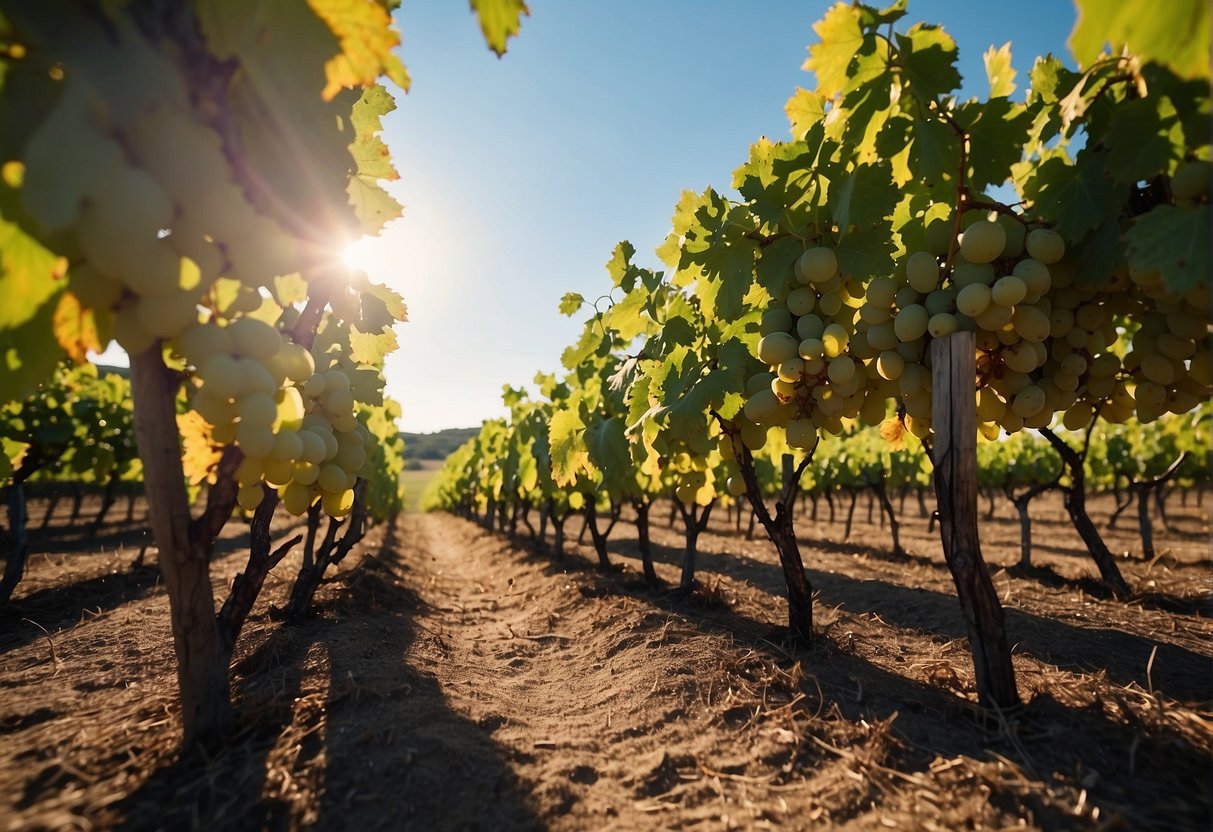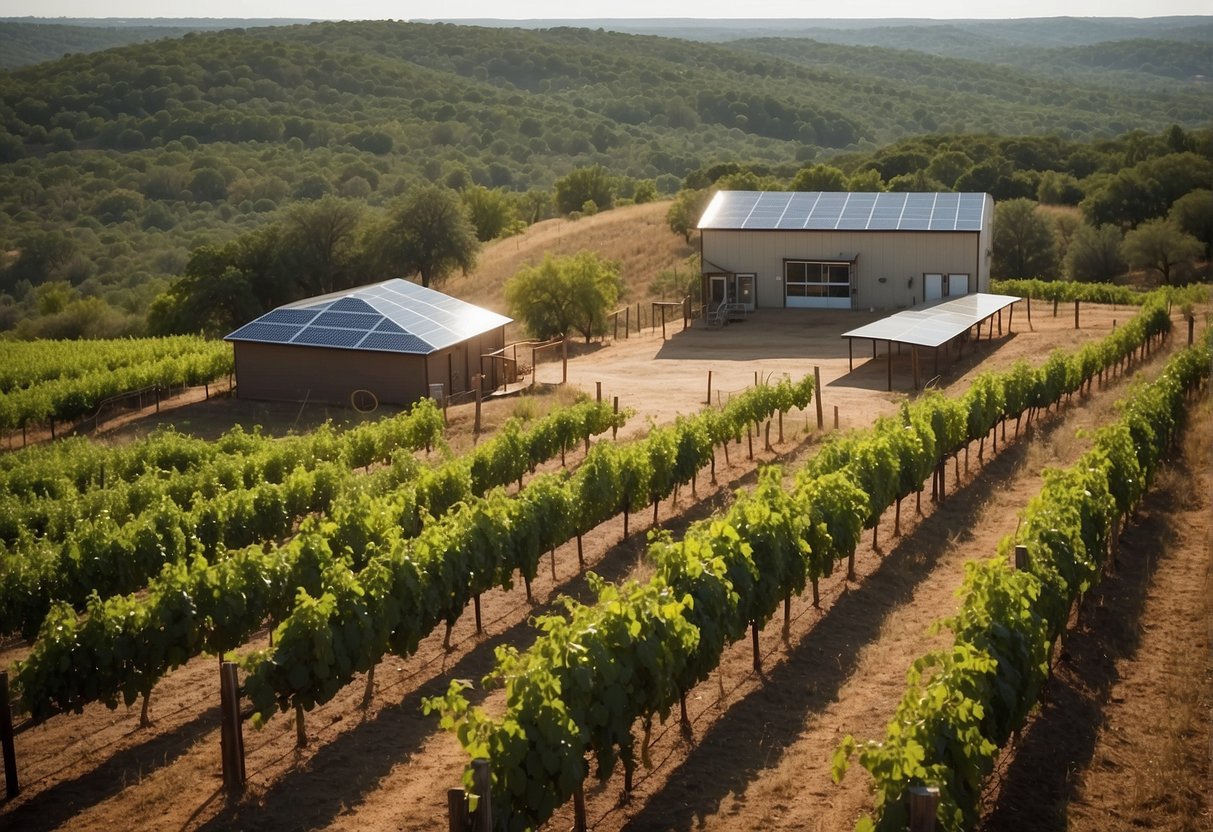Innovative Practices for Sustainability

In recent years, Texas has become an emerging force in the winemaking industry, drawing attention for its commitment to sustainability and innovative practices. The Lone Star State is redefining the craft by integrating eco-friendly methods that appeal to environmentally conscious consumers. Texas wineries are leading the charge by adopting advanced techniques such as utilizing stainless steel barrels, which offer longevity and recyclability, and implementing cryo-maceration processes that enhance wine flavors while reducing energy consumption.
The shift towards sustainable winemaking aligns with a global trend that prioritizes the health of our planet. Texas winemakers are not only focused on producing high-quality wines but also on ensuring that their production methods have minimal environmental impact. From conserving water to managing vineyard pests with non-invasive methods, these pioneers are creating a roadmap for eco-friendly viticulture.
By exploring the nuanced approaches Texas vintners are taking, we can gain insight into the future of winemaking. It’s not just about the end product; it’s about the journey towards creating wines that are as good for the earth as they are for the palette. The Texas wine scene is blossoming, proving that dedication to the environment can go hand in hand with exceptional wine creation.
Background of Texan Winemaking
The history and progression of winemaking in Texas set the stage for its present-day sustainable practices, with innovation at the heart of this evolution.
Historical Shifts
Winemaking in Texas dates back to the 1650s, introduced by Spanish missionaries who planted vineyards near present-day El Paso. The industry saw some early commercial success in the 1800s, but it wasn’t until the late 20th century that Texas winemaking began to flourish. Pioneering efforts in the 1970s, primarily from winemakers in the Hill Country and High Plains regions, reignited the industry, with a focus on perfecting grape varieties suited to the challenging Texas climate.
Current Eco-Friendly Trends
In recent years, Texas winemakers have embraced eco-friendly practices to bolster sustainability while maintaining quality. Two key innovations include:
- Stainless Steel Barrels: A growing number of wineries have adopted stainless steel barrels for fermentation and aging to improve recyclability and wine preservation.
- Cryo-Maceration Technique: Some producers employ cryo-maceration, which involves freezing grape skins before fermentation to extract color and flavor without the use of harsh chemicals.
Innovative Production Methods
Texas wineries are embracing new techniques to ensure their wine production is sustainable. These include the use of stainless steel barrels and the cryo-maceration process, which both contribute to eco-friendly winemaking practices.
Adoption of Stainless Steel Barrels
Stainless steel barrels have become a popular choice among Texas winemakers for several reasons. Firstly, they enhance sustainability by being reusable and easy to clean, vastly reducing the need for harsh chemicals. They also offer winemakers precise control over the fermentation process. In comparison to traditional oak barrels, stainless steel does not impart any additional flavors to the wine, ensuring a pure expression of the grape’s character.
- Advantages:
- Reusability and durability
- Less maintenance and cleaning effort
- No flavor alteration, allowing the grape’s profile to shine
Cryo-Maceration Technique
The cryo-maceration technique involves freezing grape clusters before fermentation, which helps in extracting more color and flavor from the skins. This process allows for the creation of wines with greater aromatic complexity and enhanced tannin structure without utilizing additional chemicals. Texas winemakers are using this method to create distinctive profiles for their wines while maintaining an eco-friendly approach.
- Process Details:
- Grapes are frozen pre-fermentation
- Results in deeper extraction from grape skins
- Leads to increased aroma and tannin complexity in wines
By integrating these innovative production methods, Texas wineries are not only reducing their environmental footprint but also crafting unique and high-quality wines.
Benefits of Sustainable Winemaking

Sustainable winemaking practices in Texas are not only preserving the environment but also enhancing the quality of wine.
Environmental Impact
Texas wineries have embraced sustainable methods that significantly reduce their ecological footprint. For instance, the use of innovative stainless steel barrels is one such practice. Unlike traditional oak barrels, stainless steel does not require the cutting down of oak trees, thus preserving forest ecosystems. Furthermore, stainless steel barrels have a longer lifespan and are 100% recyclable at the end of their usage. Wineries also employ cryo-maceration, a process that uses cold temperatures to extract flavors and colors from grape skins. This technique reduces energy consumption as it takes place at ambient temperatures, eliminating the need for additional cooling.
Quality of the Wine
Sustainability also plays a crucial role in the caliber of wine produced. By using cryo-maceration, winemakers can precisely control the extraction process, leading to a more refined flavor profile. The wines exhibit enhanced aromas and a more vibrant, clear color. Using stainless steel barrels ensures consistency in the wine’s flavor, as the steel doesn’t impart additional notes or tannins that oak might. It also allows the wine’s fruit characteristics to shine, creating a pure expression of the grape varietal.
Consumer Perception and Market Trends
In the heart of the evolving winemaking industry, Texas wineries are embracing eco-friendly practices that are shaping consumer preferences and defining market trends.
Demand for Eco-Friendly Wines
Consumers increasingly value sustainability, directly influencing their purchasing decisions. Statistics reveal a steady growth in the market segment prioritizing eco-friendly products, with wines being no exception. Surveys indicate that a significant portion of wine enthusiasts are willing to pay a premium for wines produced with environmentally responsible methods. Texas wineries are capturing this shift by offering wines that comply with eco-friendly protocols, leading to a surge in demand for these products.
Texas Wineries Branding
Texas wineries are strategically positioning their brands to align with environmentally conscious values. They incorporate sustainable practices into their brand identity, appealing to a demographic that places a high importance on ecological impact. Marketing materials often highlight the use of innovative stainless steel barrels and cryo-maceration techniques, which reduce the carbon footprint and appeal to the eco-aware consumer. Branding efforts also emphasize local engagement and a commitment to preserving the natural Texan terroir, resonating with consumers who prefer to support businesses with a purpose beyond profit.
Future Outlook for Texas Wineries
The wineries in Texas are gearing up for groundbreaking developments in sustainable winemaking, poised to tackle the challenges and seize the opportunities that lie ahead.
Advancements on the Horizon
Texas wineries are expected to embrace more cutting-edge technologies that enhance sustainability. Energy efficiency is forecasted to improve with the integration of solar panels and geothermal cooling systems. Wineries may also invest in water conservation systems such as rainwater harvesting and innovative irrigation techniques to mitigate water usage. The adoption of biodegradable materials for packaging is anticipated, reducing the industry’s carbon footprint.
Challenges and Opportunities
The wine industry in Texas faces several challenges, including climate change and market competition. However, these challenges present unique opportunities. The necessity to adapt to warmer temperatures could lead to the cultivation of more heat-resistant grape varieties, potentially introducing novel flavors to the market. Wineries have the chance to distinguish themselves by capitalizing on eco-tourism, attracting visitors interested in sustainable agriculture. There is also potential for growth in the organic wine segment as demand for environmentally friendly products continues to rise.



